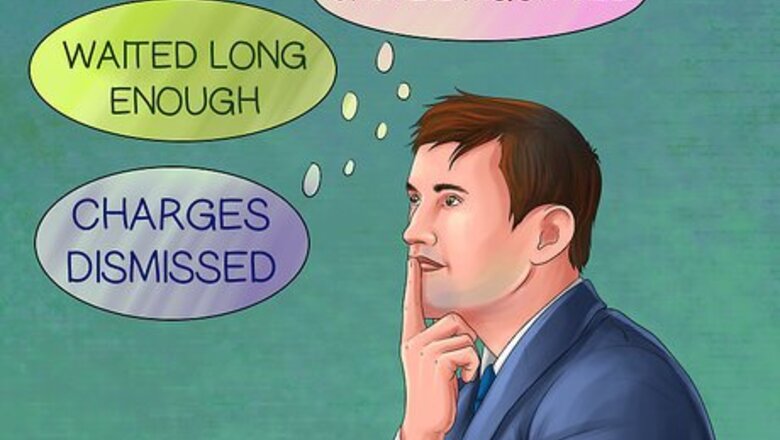
views
Deciding to Oppose the Motion
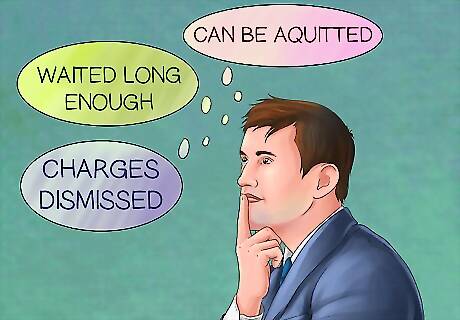
Identify why you want to oppose nolle prosequi. Many people would be happy for the prosecutor to terminate the prosecution. Accordingly, you should think carefully about why you are opposing this motion. The following are some reasons: You’ve waited long enough. Sometimes prosecutions last for years, and you might want to force the state to bring a trial. You think you can be acquitted. Remember that a nolle prosequi doesn’t lead to your acquittal. Instead, the prosecutor can generally start the prosecution up again by filing a new indictment, so long as the statute of limitations hasn’t expired. You want the charges dismissed. In your opposition motion, you can point out why the charges should be dismissed. Basically, you merge a Motion to Dismiss with your motion opposing nolle prosequi. You could ask that the charges be dismissed for several reasons. For example, the statute of limitations might have expired, or the indictment might be defective.
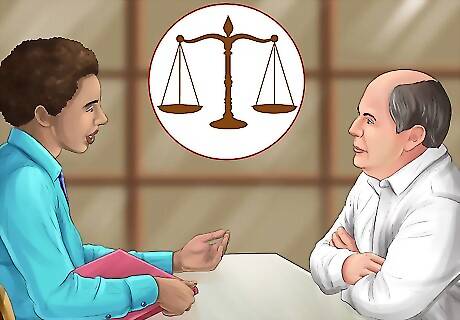
Talk with your lawyer. Before making up your mind to oppose the motion, you should talk with your attorney. Get his or her opinion as to whether opposing the nolle prosequi motion is in your best interest. As a criminal defendant, you should already have a lawyer. If you can’t afford a lawyer, then you should have been offered a public defender if your income is low enough.

Read your state’s law. You should check whether your state law allows you to oppose the prosecutor’s nolle prosequi motion. In Connecticut, for example, you can object as the defendant and demand either a trial or a dismissal. However, you can’t object if a material witness has died or material evidence has disappeared. Read your own state law to see if it gives you a right to object to the nolle prosequi motion. You can typically find your state laws online. You should find the section on criminal law and read about how criminal cases can be dismissed. If you can’t find your state’s law online, then you should have someone visit your nearest law library. This may be at the courthouse or at a nearby law school. Ask the librarian to show you the criminal code.
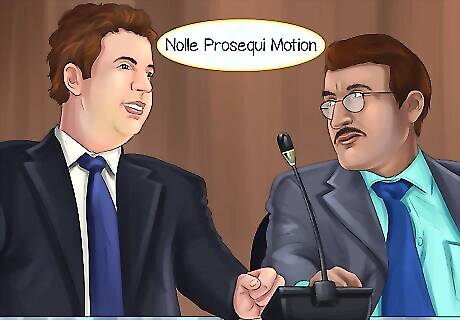
Talk with the prosecutor. Your lawyer can talk with the prosecutor ahead of time to discuss why you are opposing the nolle prosequi motion. The prosecutor might agree to dismiss the charges outright, depending on your circumstances. The prosecutor might also offer a plea deal. Talk with your lawyer about whether you should take a plea deal.
Drafting Your Motion
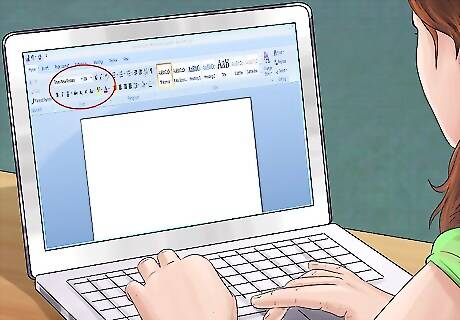
Format the document. Your lawyer should draft the motion in opposition for you. However, if you are representing yourself (which isn’t advised), then you will have to draft the motion. Begin by opening a word processing document and setting the spacing to double-spaced. Also select a readable font size and style. For example, 14 point Times New Roman or Arial is standard for motions. If you don’t know how to format the document, then look at the prosecutor’s motion for nolle prosequi and use that as a guide.
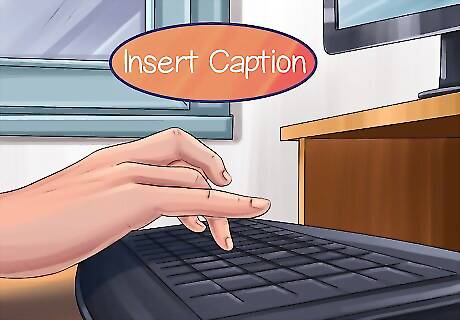
Insert your caption. The motion begins with the caption, which includes the name of the court, the names of the parties, and the case number. You may also add the judge’s name. You should insert the caption at the top of your document. You can insert your title below the caption. You should title the motion something like “Defendant’s Motion in Opposition to Motion for Nolle Prosequi.” If you are also asking for the case to be dismissed, then title your motion something like “Defendant’s Motion in Opposition to Motion for Nolle Prosequi and Defendant’s Motion to Dismiss.”
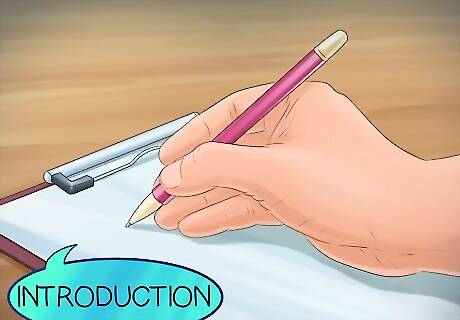
Add your introduction. Your introduction can briefly state that you oppose the prosecutor’s motion for nolle prosequi. If you are representing yourself, then you should note that fact. For example, you could write: “COMES NOW Defendant, acting on his own behalf, hereby moves this Honorable Court to enter an Order to Deny the State’s Motion for Nolle Prosequi, and offers in support the following….”
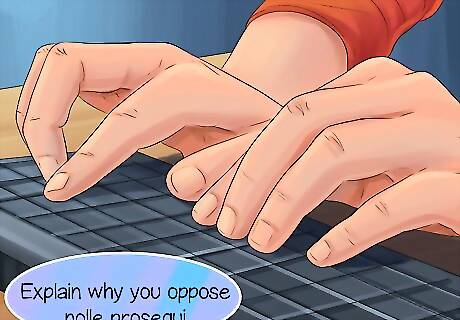
Explain why you oppose nolle prosequi. Using numbered paragraphs, you should explain why you oppose the motion to terminate prosecution. Your lawyer will explain the grounds and cite to relevant legal authority. If you want the judge to dismiss the case, then you will need to cite relevant reasons. For example: The statute of limitations has expired. The state has only so much time to prosecute you. The amount of time will depend on the crime you are charged with. The state has violated your rights to a speedy trial. If the state has delayed bringing you to trial for no good reason, then you might be able to get the case dismissed, especially if one of your defense witnesses has died or disappeared. You are being subject to double jeopardy because you have already been convicted of this offense. The prosecutor has engaged in egregious misconduct. For example, the prosecutor might have eavesdropped on your conversations with your lawyer. The indictment was defective because it lacked specificity or failed to state an offense.
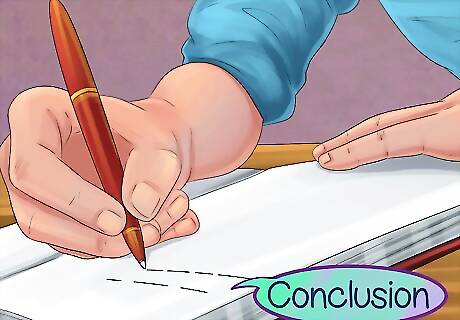
Add a conclusion. In conclusion, simply state: “WHEREFORE, Defendant respectfully requests that this Court enter an Order denying the State’s Motion for Nolle Prosequi.” If you also brought a motion for dismissal, then be sure to ask the court to grant this motion as well.
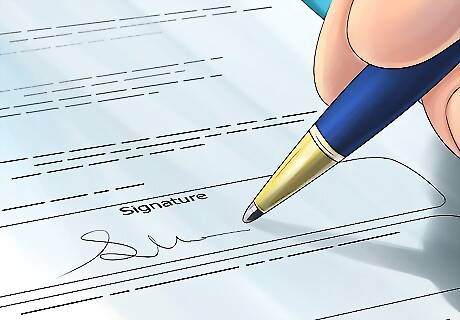
Sign the motion. If your lawyer is drafting the motion, then he or she will sign the motion. If you are representing yourself, then you should include a line for the date and a line for your signature.
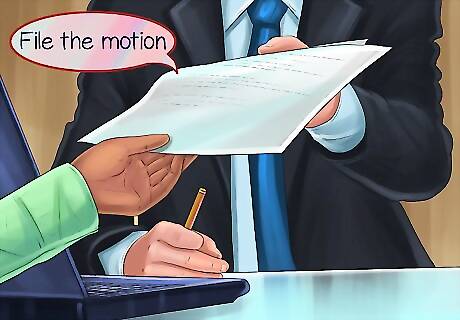
File the motion. Once your lawyer finishes the motion, he or she will have to file it with the court and send a copy to the prosecutor. There shouldn’t be a fee for filing the motion. Always keep a copy of the motion for your records.
Attending Your Hearing
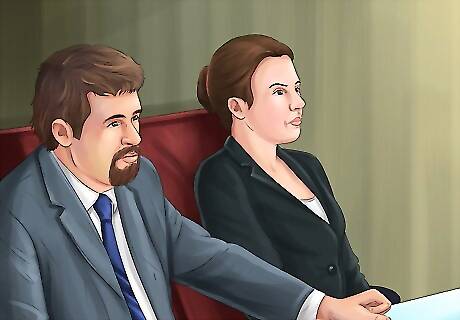
Prepare for the hearing. At the hearing, the judge will probably ask you questions to understand why you are opposing the prosecutor’s attempt to terminate the prosecution. You should be prepared to answer any questions that the judge has. Even if you have a lawyer representing you, the judge still might want to hear from you. So be prepared to explain exactly why you want to go to trial. To help prepare, read all of the motions filed. If you asked the judge to dismiss the charges against you, then the state probably filed a response to that request. You should read all motions on any issue to be discussed during the hearing.

Listen to the prosecutor. The prosecutor will go first, since he or she brought the motion for nolle prosequi. Listen quietly and don’t interrupt. You will have a chance to explain your case second. At that point, you can respond to any statement made by the prosecutor.
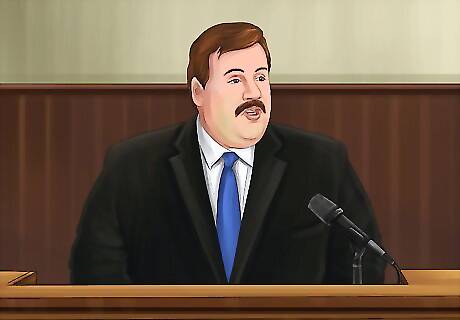
Speak clearly. When it is your turn, your lawyer will explain why you are opposing the motion for nolle prosequi. Your lawyer should try to be brief. It is best to focus on only two or three issues. If you are representing yourself, then remember the following tips: Don’t raise new arguments you didn’t raise in your motion. You are limited to the arguments you made in your written submissions. Speak clearly, so that the judge and prosecutor can hear you. Refer to the judge as “Your Honor.” Listen quietly if the judge has questions and don’t interrupt. If you don’t know the answer, then say so. Don’t guess or say anything false when answering a judge’s question.
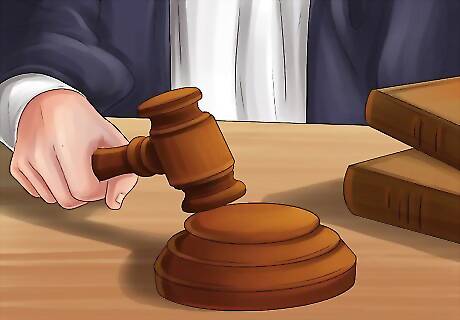
Receive the judge’s decision. The judge will usually decide the motion after hearing argument from both sides. If the judge denies the prosecutor’s motion for nolle prosequi, then the judge should set a date for the trial. If you asked for the charges to be dismissed, then the judge will decide that issue at the same.




















Comments
0 comment